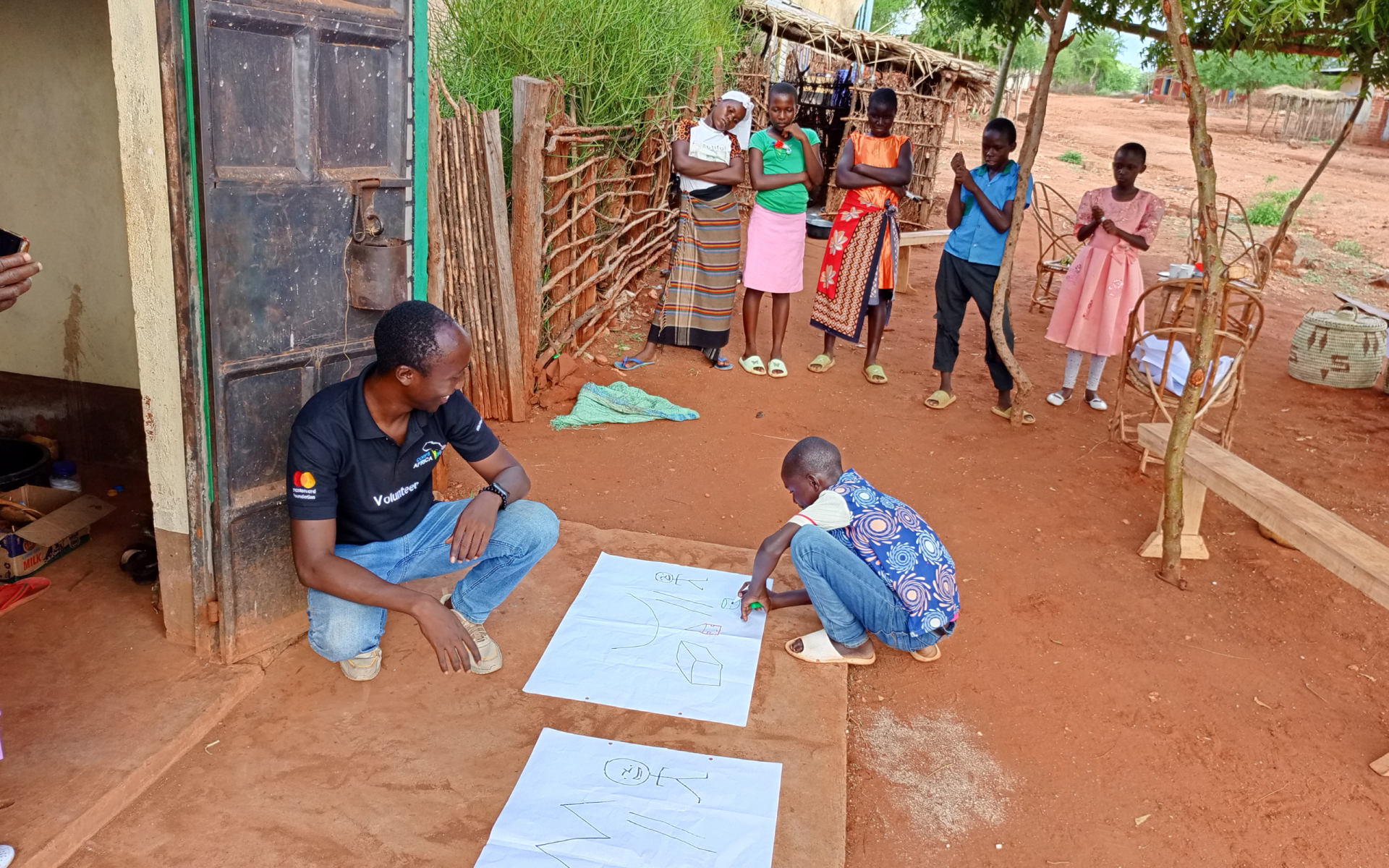Apples are still my favorite fruit since they’re crispy, not sour, and not sweet. The most significant lesson I took away from my kindergarten teacher was that everything, even humanitarian efforts, must be done in moderation. I vividly recall how she managed to offer everyone the same amount of attention in an overcrowded classroom while maintaining a calm voice. Even though I have zero idea what “z” stands for, “A” has always represented an apple to me, according to the fundamentals of the alphabet. Even human development begins with fundamentals like ABCD.
My volunteerism journey hasn’t been that easy, I have broken down several times but one thing that has always kept me standing is going back to the basics. It’s not always all about what it takes, what do you have? In a new community, it’s almost impossible to convince people to buy into your idea if you always tell them to buy this and that. In my daily errands, one of the community members asked, “Don’t you have enough problems to solve back at home? ” It was a valid question, according to him, he felt comfortable and had already adapted to their challenges. A stranger like me wouldn’t convince him that there was a way to go around it, living to them meant accepting their problems as part of their life. I have seen people walk out of my meeting because another NGO nearby was distributing goodies that I couldn’t provide.
“We can’t grow vegetables because we don’t have water,” these are the same comments I hear daily, even from those living on the banks of River Tana. They buy vegetables daily grown with the same water flowing down into the Indian Ocean as they watch. Stone throws away, you’d find a few households trying to survive using simple but innovative ideas. Using plastic bottles to fetch the river water to irrigate their vegetables, is a task that other people consider too hard to do. At this point, I’d ask you a simple question, how much water does a herd of goats need to drink to maturity? How much water does a tomato or kale need to grow to maturity? Incomparable, right?
I have had an opportunity to visit several projects in this area, I wouldn’t call them failed investments, let’s just say they are abandoned for the moment. Several boreholes that cost millions to drill, in an area where water scarcity is still a major challenge, have been abandoned due to minor malfunctions. Which is more expensive? Drilling another borehole or replacing a leaking tank? Losing all your herd to the crocodiles or contributing a hundred shillings to the community kitty to repair a faulty pump? This reminds me of the tale of a rich man who got angry for not having a bite at a poor man’s party who slaughtered his only goat. He forgot that he could get the same meat by just slaughtering one from his herd of 200 goats. You see, no one is poor, it’s just the mindset.
One of the most inspiring stories I have encountered is that of Munene, a grade one boy who dreams of becoming an engineer, just like me when growing up. In an area where cars or even lorries are a rare phenomenon, he is still fascinated by automobiles. He makes his own and drives it around like the boss he is. To me he is a boss because he can fund his lifestyle, he uses waste plastic bottles to make toys from scratch and doesn’t have to bother his parents to buy him toys. This is a classic example of Human Centered Design, a village industry thriving solely on local assets with a young boy as the chief executive officer. Did I tell you that his name, Munene, means “chief”? Chicken coops aren’t a thing in this community, their chicken spend the night on trees, just like any other bird. The only way to tell an ordinary tree and a chicken nest are the blades around the tree. Blades are made from waste iron sheets and nailed around the tree to keep predators at bay.
Development is as basic as ABCD, using locally available resources to champion communal change. If we incorporate HCD into it, we have a more sustainable and impactful change. Take, for example, Munene’s case, if he is allowed to teach other kids how to make toys from plastic bottles, we won’t have a littering problem in school. It could only take grade one kids to solve the plastic waste problem in our environment. It’s not that I haven’t tried mangoes, oranges, bananas or papayas, at times when overwhelmed with choices, I just tend to go back to the basics. To me that’s the alphabet, ABCD, and there, apples come first. I can now testify that an apple a day keeps the doctor away.

